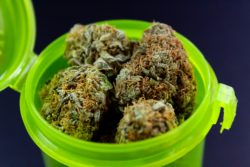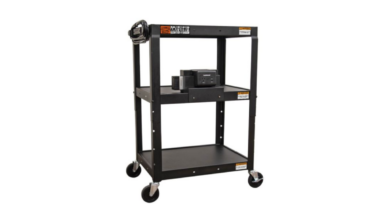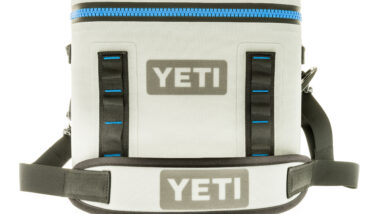Top Class Actions’s website and social media posts use affiliate links. If you make a purchase using such links, we may receive a commission, but it will not result in any additional charges to you. Please review our Affiliate Link Disclosure for more information.
A $500 million class action lawsuit challenges the potency of several Canadian cannabis companies’ products, claiming testing shows the THC content is “drastically different” than advertised.
Cannabis contains delta-9-tetrahydrocannabinol (THC), which can cause euphoria, and cannabidiol (CBD), which affects the brain but does not have intoxicating effects.
Cannabis is used for a variety of purposes. It can be used to alleviate symptoms from certain health problems, reduce nausea due to chemotherapy, relieve pain, and reduce anxiety.
Because THC may cause the user to experience euphoria, many people consume THC products recreationally. Individuals who seek the benefits of cannabis without the “high” can use products that contain only CBD.
Tilray, Cronos, Aurora Cannabis, and other major cannabis companies are named as defendants in the cannabis mislabeling class action lawsuit.
Plaintiff Lisa Marie Langevin says she purchased a Tilray cannabis oil product in Calgary earlier this year. According to the cannabis mislabeling class action lawsuit, she tried it several times but did not feel the results she expected.
Shaun Mesher, who has a PhD in biochemistry, sent the Tilray cannabis oil product to a lab for testing.
A potency analysis of the product reportedly showed that the Tilray cannabis oil contained 46 per cent of the THC advertised. A second sample from the same lot was also tested and contained 79 per cent of the advertised THC content.
Mesher subsequently sent more samples of cannabis products from other cannabis companies to the lab and found the THC content varied significantly from what was advertised on the label.
Six cannabis product samples were reportedly tested. Of these six samples, two were stronger than advertised and four were weaker. According to the cannabis mislabeling class action lawsuit, the range of THC content was 54 per cent to 119 per cent of the content listed on the product label.
Another product reportedly had CBD content that contained just 52 per cent of what was advertised, the cannabis mislabeling class action lawsuit alleges.
“Two-thirds of our samples were outside of what Health Canada recommends as the variability limit in the content of THC or CBD in those bottles,” Mesher said.
“And then of that two-thirds, over half was greater than 25 per cent difference in the labelling.”

Health Canada has not announced recalls of any of the cannabis products tested, according to the cannabis mislabeling class action lawsuit.
Cannabis oil can be added to edible goods or it can be consumed directly. Consuming too much cannabis oil can cause cannabis poisoning. Health Canada’s website explains that cannabis poisoning is “unpleasant and potentially dangerous.” Cannabis poisoning may require emergency medical attention but it is “not generally known to be fatal.”
John Kingman Phillips, a lawyer who is representing Lisa, says cannabis products can be dangerous if the THC content listed on the label does not represent the actual content. Consumers may end up consuming additional quantities of the product if they initially feel no effects, putting them at risk of overdose.
“You’re not getting what you paid for if it’s not giving you the psychological effects that you’re looking for, and you get trained on mislabelling for what you expect to purchase the next time you go out,” Phillips said.
Phillips hopes the cannabis mislabeling class action lawsuit will help draw attention to potential quality control issues in the Canadian cannabis industry.
“Now that marijuana and cannabis (are) legalized, the question is then, are their products being marketed appropriately and safely?” Phillips said. “And the statement of claim that we filed raises questions about that, and raises questions, I think, also about the degree to which Health Canada has been actively involved in regulating the industry.”
The proposed cannabis mislabeling class action lawsuit must be certified by a judge at Alberta’s Court of Queen’s Bench to proceed. Class Members would include Canada residents who purchased and used cannabis products from the named defendants, and used them before the expiry date.
What do you think about cannabis companies allegedly mislabeling their products’ potency? Have you ever been disappointed by the potency of a purchased cannabis product? Tell us your story in the comment section below!
Lisa is represented by John Kingman Phillips.
ATTORNEY ADVERTISING
Top Class Actions is a Proud Member of the American Bar Association
LEGAL INFORMATION IS NOT LEGAL ADVICE
Top Class Actions Legal Statement
©2008 – 2024 Top Class Actions® LLC
Various Trademarks held by their respective owners
This website is not intended for viewing or usage by European Union citizens.


















7 thoughts onCannabis Companies Allegedly Mislabeling Products Sparks Class Action Lawsuit
Have been purchasing CBD oil through Aurora for quite a few years. Please include me in the pending class action
I’ve been using Aurora since they bought out Med Relief
Include me please.
Bad thing when strict quality enforced by health Canada.
Count me in
Please include me in this pending Class Action. Thank you!
I think it’s funny that the government tripled the price of an established market product citing the quality we can now expect from licensed growers. They tried to scare us into going from dealer to…..licenced dealers because of the various checklists and quality. If indeed thc leaches into plastic then that’s the 1045th reason to stop using these huge wasteful containers and use hemp ones maybe? Wow, gov really does complicate everything it dictates.
Sooo , how do I get my name on this list ?